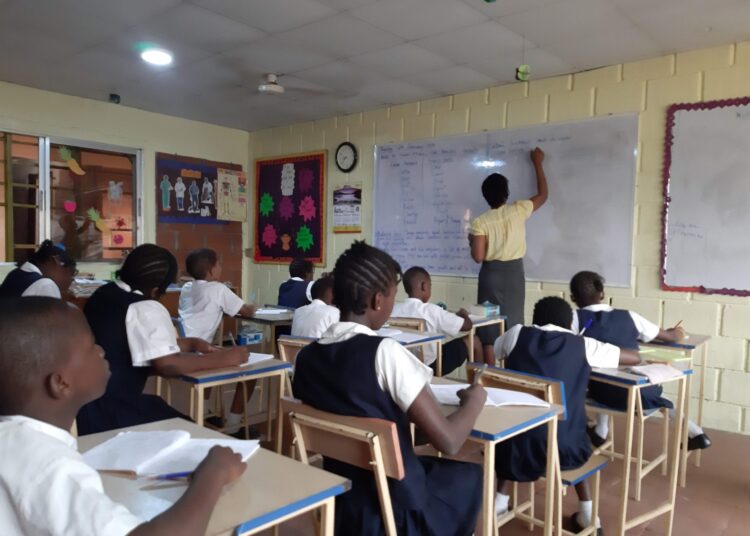Federal government has launched the HOPE-Education programme, an ambitious initiative designed to reach 29 million school-aged children and empower over 500,000 teachers nationwide.
The minister of Education, Dr. Maruf Alausa, made the disclosure via his official X handle (formerly Twitter) following the inaugural meeting of the National Steering Committee for the Human Capital Opportunities for Prosperity and Equity (HOPE) project held on Monday.
The HOPE project is a cross-sectoral strategy of the Tinubu administration, comprising three major pillars: Hope-Education, Hope-Health, and Hope-Gov, all aimed at driving inclusive development through targeted human capital investments.
Alausa said, the Steering Committee includes top-ranking members of the federal cabinet, including the minister of Budget and Economic Planning, Senator Atiku Bagudu; the minister of Finance and Coordinating minister of the Economy, Mr. Wale Edun and the coordinating minister of Health and Social Welfare, Prof. Muhammad Ali Pate. Also present was the minister of Women Affairs, Hajiya Imaan Sulaiman-Ibrahim, along with the three national programme coordinators.
The education minister stated that the HOPE series of programmes would be catalytic to broader federal government development initiatives, especially in sectors that directly affect the youth and workforce readiness.
He emphasised that President Bola Tinubu’s vision for the programme is grounded in the belief that investments in education, healthcare, and social protection are vital to unlocking the full potential of Nigeria’s vast population.
“President Bola Ahmed Tinubu, remains deeply committed to advancing human capital development to unlock significant demographic dividends for the Nigerian people.
“We are building a nation where young Nigerians are well-educated, have access to quality healthcare, and are empowered to become a strong and productive workforce.”
HOPE-Education, which is valued at $552 million, is jointly funded by the World Bank and the Global Partnership for Education (GPE). It focuses on three main areas: improving the quality of education, expanding access to learning, and strengthening education systems across all 36 states and the Federal Capital Territory.
The programme places special emphasis on foundational learning, teacher professional development, digital innovation in education, and the urgent challenge of reducing the number of out-of-school children.
Nigeria currently has one of the highest numbers of out-of-school children globally, and HOPE-Education seeks to reverse this trend through formal and non-formal learning models.
According to Alausa, the initiative aims to reach 29 million children with improved learning outcomes, enhance the skills of 500,000 public school teachers, support over 65,000 public schools, and operationalise 10,000 non-formal learning centres that will serve children and youth who are currently outside the traditional school system.
A core focus of the programme is on teacher training and continuous professional development. By investing in digital tools, modern pedagogy, and inclusive teaching practices, the programme aims to elevate the standards of classroom learning and equip teachers with the capacity to handle the dynamic needs of 21st-century learners.
The programme also integrates data and digitalisation, with the aim of improving transparency, planning, and accountability within the education sector. This includes building a robust education management information system (EMIS) that enables policymakers to make evidence-based decisions and track the impact of interventions in real time.
The HOPE-Education programme is expected to roll out in phases across the country, with strategic partnerships between federal and state governments, development agencies, and civil society actors. Already, reactions from education stakeholders suggest strong optimism about the programme’s potential impact, if it is implemented with transparency, adequate funding, and strong political will.
With this announcement, Nigeria joins a growing list of countries using integrated, cross-sectoral approaches to build a future-ready population. For millions of Nigerian children and their teachers, HOPE-Education may well be the beginning of a long-overdue transformation.










